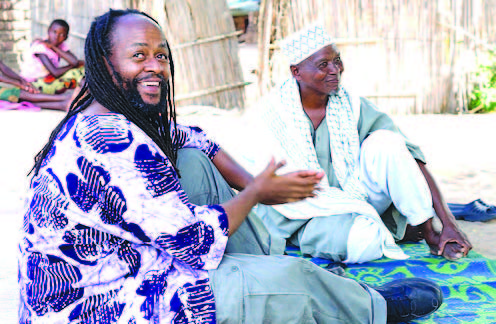Remember Chief Moto
As we celebrate the 57th Independence Anniversary, we must remember Chief Moto. I am happy that I got to know him and we shared a friendship, maybe even a brotherhood and shared stories.
As the last born son of Henry Masauko Chipembere, I had an unspoken connection with the chief that had to do with our shared history. We were both children of the liberation struggle Chipembere waged that began in Mangochi in the 1950s.

The Chipembere family was pleased with President Lazarus Chakwera’s recent visit in Mangochi. It also meant a lot that the President went to see the chief at Mangochi District Hospital to apologise for all the pain caused by founding president Kamuzu Banda’s one-party regime in Moto Village.
Broken promises
The people realise that their story has been hidden or avoided by many in power. We cannot talk about healing Malawi without restoring dignity to Moto Village.
Chief Moto told me he had become accustomed to visits by politicians who knew that many had been jailed and killed for standing up to Banda with my father.
However, the politicians made promises they failed to keep. Each time that happened, the people in his village felt more isolated from notions of a unified and strengthened Malawi.
There is a Chichewa saying that goes: Ukonde uyambira ku bwakale (the now owes something to the past).
Therefore, it is imperative that those living in the now concentrate on building the future.
The chief and I decided many years ago to work together to bring new ideas to Moto. He tasked me with finding him new technologies that would help the villagers become forward thinking.
I brought him a treadle pump and later brought a crew to install solar power in his home.
My last visit was two years ago when we met in Mchinji at Permaculture Paradise run by Luwayo Biskwick, who offered villagers from Mangochi week-long trainings.
The chief kept learning to move forward regardless of the obstacles faced by his people. He was learning how to farm using what was available in his region more wisely.
Clever chief
Moto struck me as a clever man—consistently on the hunt for new ideas.
I can see him riding his motorcycle on the dusty road that leads to Moto Village now. This memory saddens me. Last time we met, he explained how he had lost his young daughter on such poor dirt roads. During a rainstorm, she was hit by a an overcrowded minibus in a muddy spot. The vehicle had slipped and killed her.
I wish Chief Moto’s wife well. The Chipemberes are sorry for her loss. She usually chats with my mother, Mai Catherine Chipembere when we come to visit.
The chief’s widow always welcomes us to their home as though we are family. In many ways we are.
We are survivors of a brutal era ready to do the work of healing the nation. My mother, Catherine Mary Ajizinga Chipembere, brought me to the villages of Mangochi in the late 1990s. By then, she had already begun building schools, creating fish dams, educating the young, providing safe places for people with HIV and giving agency to women working with orphans through her charity, Women’s Initiative Network (WIN Malawi).
Lessons from mom
My mother raised me to understand that when Kamuzu wanted my father dead, it was the people of Mangochi who supported him and hid him because they believed in his vision of a Malawi free of tyranny.
She taught me that the people of Moto and Talia villages had paid the highest price towards our collective liberation.
I thank Chakwera and the Malawi Congess Party (MCP) for their visit to begin the long journey towards healing.
I am sure it was a miracle for Chief Moto to see the MCP president coming to build peace before his untimely death.
The Chipemberes are ready to work with anyone who is ready to change the conditions that we see in the villages of Mangochi.
We cannot blame those in power today for what happened long ago. However, we need to act now to move the country forward and there is no better place to start than in the rural areas, especially Moto Village.
Our people need to see the followers of Chipembere and the new government come together to finish the work of independence which must be human rights and dignity for all.
Seeing any of us starve must be shameful to all of us.
Let change be seen
In all of the news I read about the President’s visit to Mangochi, the media reported: “Recently, President Chakwera visited Moto Village where the MCP reconciled with the people of the village following a police raid that led to the arrest of some people from the village 50 years ago [1971].”
I am sure these words were copied and pasted. The word “reconciled” was used as though everything that happened is now finished and in the past.
The right word should have been “reconciliation.”
What happened when the President visited was a clear indication that both Mangochi and the government are seeking a path to reconciliation.
We are closing one chapter and beginning the arduous work of the next. As Chipembere’s son, this is cause for joy and hope.
Rest in peace, Chief Moto. We are coming together to do the work!
As my father once said, “Freedom is meaningless, unless people see change.”





